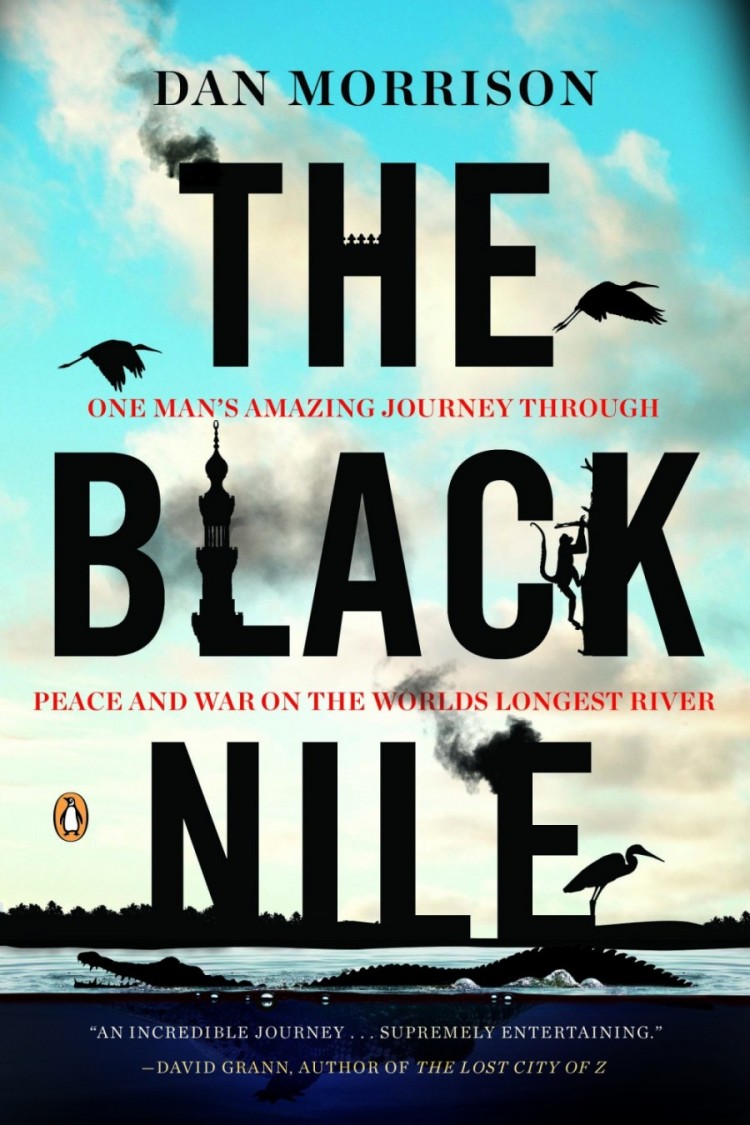“If you don’t blow your own horn, there is no music,” Jimmy Breslin, that great id of New York newspapering, said more than once (and I’ve quoted him more than once). And so: Here’s The Black Nile, profiled in The Egypt Independent. The book, “with its attention to fact and suspension of easy judgment, is the farthest kind of work from #Kony2012,” says James Purtill. And here’s The Black Nile on the summer reading list of India’s Sunday Standard magazine. And, lastly, an unexpected plug from indie publicist LuxLutus. More soon.
The Nile: Five Forgotten Cinematic Jewels
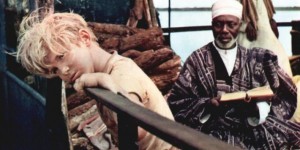 Forget Agatha Christie’s Hercule Poirot unraveling the deadly mendacities of a steamer full of wealthy foreign tourists. Divorce your gaze from the spray-tanned Elizabeth Taylor and her cast of genuflecting thousands. For a cinematic glimpse of what life was like along the Nile in the glorious old and not-so-old days, check out these overlooked classics of exploration, identity, betrayal, and fear on the world’s longest river. (A video slideshow at the Huffington Post.)
Forget Agatha Christie’s Hercule Poirot unraveling the deadly mendacities of a steamer full of wealthy foreign tourists. Divorce your gaze from the spray-tanned Elizabeth Taylor and her cast of genuflecting thousands. For a cinematic glimpse of what life was like along the Nile in the glorious old and not-so-old days, check out these overlooked classics of exploration, identity, betrayal, and fear on the world’s longest river. (A video slideshow at the Huffington Post.)
An Interview with the Huffington Post
Travel, literature, and a little too much gunfire: Andrew Burmon talks with Dan Morrison about The Black Nile.
Leaving South Sudan with a Broken Gear Stick
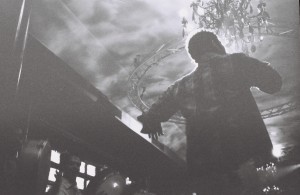 * Cruising on jellied asphalt through the northern badlands of South Sudan when the unthinkable happens. An excerpt from The Black Nile on NationalGeographic.com
* Cruising on jellied asphalt through the northern badlands of South Sudan when the unthinkable happens. An excerpt from The Black Nile on NationalGeographic.com
* In Cairo, riots, repression, and a room full of dancing men. A diverting excerpt from The Black Nile, courtesy our friends at Swink Magazine in Los Angeles.
Revolution on the Nile
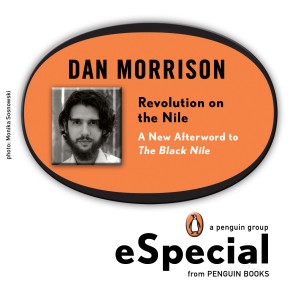 In just eight days a new country, the Republic of South Sudan, will be born. It’s a huge step – but not the last step – in a 55-years-and-counting struggle for dignity and self-determination.
In just eight days a new country, the Republic of South Sudan, will be born. It’s a huge step – but not the last step – in a 55-years-and-counting struggle for dignity and self-determination.
The south’s departure from Sudan has been as troubled as its union, with the recent fighting in Southern Kordofan and Abyei, as well as continuing insurgencies by southern renegades including George Athor and Peter Gadet. The Lord’s Resistance Army, too, remains active in the western part of the new country.
These are only the most obvious and immediate challenges faced by the southern people. Southern Sudan’s leaders, its people, and its nascent institutions will have to struggle mightily to prevent their new state from resembling the old Sudan in its approach to human rights, inclusivity, opportunity, and rule of law.
None of this should take away from the gigantic achievement that southern Independence represents. Millions died and millions more were made homeless, and endured famine, captivity and fear to get to July 9: A delicious and hugely challenging Year One. Democracy entails the right of the people and their representatives to make mistakes, to take responsibility for those errors (to “own” them, in the current parlance) and make corrections. It won’t be at all easy. But it’s a great, historic moment.
On July 5, Penguin Books will publish Revolution on the Nile, my new Afterword to The Black Nile, as an “e-special” available on the Kindle, the Nook, and Apple’s iPad, iPhone, and iTouch, as well as other e-readers. Revolution on the Nile updates The Black Nile with an account of south Sudan’s January freedom referendum, squashed attempts at public protest in northern Sudan, and the electrifying revolt against Hosni Mubarak in Egypt.
Mubarak’s Nigerian Billions
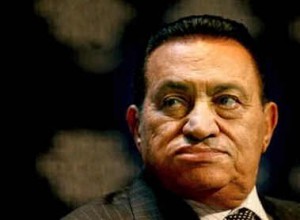 It was only a matter of time before I got my hands on a suitcase full of sweaty Egyptian pound notes.
It was only a matter of time before I got my hands on a suitcase full of sweaty Egyptian pound notes.
—– Original Message —–
From: Andrew Brudenell <andrew@assetmanagement.hsbc.com>
To: undisclosed-recipients <undisclosed-recipients:;>
Sent: Sat Mar 26 06:40:26 2011
Subject: Hosni Mubarak.
Hello friend,
I am a private banker CFA Portfolio Manager to Hosni Mubarak at HSBC Asset Management, London England, UK. Continue reading “Mubarak’s Nigerian Billions”
Sudan Cracks Up
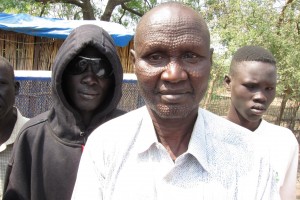 My four-day series on the coming breakup of Sudan in Slate magazine has received good notices from the likes of The Village Voice, The Browser, Bobby Ghosh of Time magazine, Microkhan, and the Wandering Savage.
My four-day series on the coming breakup of Sudan in Slate magazine has received good notices from the likes of The Village Voice, The Browser, Bobby Ghosh of Time magazine, Microkhan, and the Wandering Savage.
In case you missed the tasty 7,500-word opus, here’s a recap:
Part 1: Meet the Bernie Madoff of Sudan
Part 2: Fighting for Freedom in the New Sudan
Part 3: South Sudan: A Million Mutinies Now?
Part 4: South Sudan’s Oil Curse
Since the series began running, the insurgent militia leader Lt. General George Athor, who I quote in Part 3 of the series, has continued his private war in Jonglei state at the cost of some 300 lives. I’m posting, after the jump, notes from my January interview with Athor. I’ll reserve comment except to say the statements of this former golden boy of the Sudan People’s Liberation Army are extremely self-serving.
That’s all for now. I’m off to write a new chapter of The Black Nile to be included in the book’s upcoming Penguin paperback edition. So much has changed on the Nile this year, and so much of if for the better, that I felt the book needed an update.
Reporting the Next Revolution
…and the next counter-revolution.
I’ve been freelancing in South Asia, the Middle East and Africa since 2003. When the Mubarak regime shut down Egypt’s Internet last week, I couldn’t help wincing for all the reporters, especially freelancers, who were caught unprepared. During the two years I lived in Cairo I kept a satellite phone for work in Darfur, southern Sudan and other places where mobile networks didn’t exist or were unreliable. It never occurred to me a day would come when a journalist would require the use of a Thuraya in the middle of Egypt’s capital. In periods of intense breaking news, logistics can be as important as brains and courage.
* Don’t count on local networks: Reporting and blogging from Egypt took a giant hit when the government shut down the Internet and mobile phone networks. Freelancers in countries including Sudan, Yemen, and Algeria (not to mention Pakistan and Bangladesh), either individually or as a collective, should keep BGAN terminals on hand. These satellite Internet terminals are small, can cost as little as $1000, and are fed by prepay scratch cards that you can top off via email. At the very least reporters should have a Thuraya or other pre-paid satphone on hand.
The Dam Bursts in Egypt
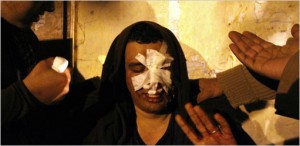 I’m not in Egypt, and I wish I was. Here’s a piece I wrote for Slate.com on the exhilarating and hard-won freedom from fear that has overtaken hundreds of thousands of Egyptians.
I’m not in Egypt, and I wish I was. Here’s a piece I wrote for Slate.com on the exhilarating and hard-won freedom from fear that has overtaken hundreds of thousands of Egyptians.
Meanwhile, as the deadly battle for control of Tahrir Square continues, with at least five dead at the hands of government-organized mobs, a few notes based on conversations with friends on the ground.
* The protests had been peaceful since the black-helmeted riot police were routed earlier this week – “a textbook Gandhian uprising,” as the Al Jazeera English anchor just described it. The young protesters controlling the square were checking people for weapons before allowing them to enter (“I got patted down in the nicest way,” said one female friend, this in a city well-known for the sexual harassment of women.) The violence started with the arrival of pro-Mubarak thugs carrying blades, clubs, razors, firebombs and guns. “A lot of people are going to die, and it’s because Hosni Mubarak, 82 and suffering from pancreatic cancer, does not know when to leave the cocktail party.” Continue reading “The Dam Bursts in Egypt”
A Glowing Review in The Washington Post
 Travel writer Tahir Shah has published a glowing review of The Black Nile in the Washington Post. It’s especially gratifying coming from an author who knows first-hand the joys, burrs, and dangers of off-the-grid travel and reporting. Here’s an excerpt:
Travel writer Tahir Shah has published a glowing review of The Black Nile in the Washington Post. It’s especially gratifying coming from an author who knows first-hand the joys, burrs, and dangers of off-the-grid travel and reporting. Here’s an excerpt:
Morrison’s experience as a journalist shines through, as does his use of humor, which frames subjects of utter horror. These include intertribal conflict, pestilence, and the dams and deforestation that have destroyed swaths of East Africa’s ancient habitat. In the southern Sudanese town of Juba, Schon cooked up his last plates of oily spaghetti and came clean about not wanting to go on, especially since “on” was into the “malarial tinderbox” of the Sudd swampland, where “the war wasn’t quite finished in Upper Nile state — antagonistic militias stewed in camps while their leaders grappled for political power.” After his childhood buddy leaves, Morrison continues alone, and, now that the author can turn his full attention to the landscape around him, the travelogue steps up a notch. What’s impressive is how well he describes without judging. The Africa he depicts is a place where tribal rivalry complements religious and political friction; where illness, disease and utter poverty shape the lives of the majority, who lack the safety nets that so often catch Westerners when we fall.
As the journey progresses, it becomes much less of a whimsical jaunt and much more of a hard-edged report. This is Morrison at his best, lean and hungry in wild wastelands of Africa’s Sahel. His description of the Sudanese capital is memorable : “A dense static of orange grit came screaming from the desert; it filled the sky and trapped Khartoum’s eight million souls in a suffocating and radiant silica heat.”
Click here to buy your copy of The Black Nile.
And check out Tahir Shah’s most recent new book, In Arabian Nights: A Caravan of Moroccan Dreams.

